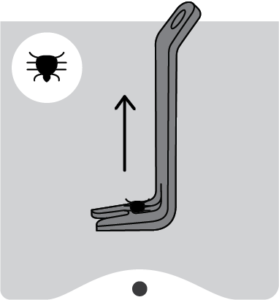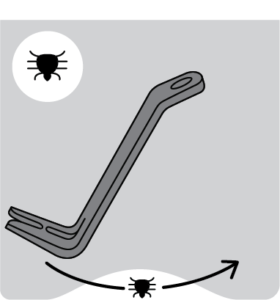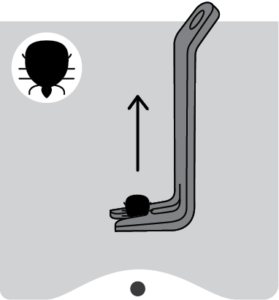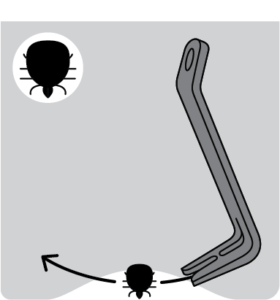It’s Tick Bite Prevention Week. Out and about in nature or working in the garden? Then watch out for ticks! As temperatures rise, so does the risk of tick bites. Ticks are most active between March and October, when temperatures are above 8Cº.
TTicks are very small, black, spider-like parasites that attach themselves to people in order to suck blood and stay alive. Without blood from a human or animal host, they cannot survive. This attachment is called a tick bite.
A tick bite can be dangerous because, among other things, they can transmit Lyme disease and the TBE virus (tick-borne encephalitis), which can lead to inflammation of the brain (membrane).

Do ticks fall from trees?
The little black creatures live in natural settings such as lawns, meadows, heaths, parks, gardens and wooded areas. Despite persistent myths, ticks cannot fly, jump or fall from trees. The danger comes from below. Keep this in mind in the measures you take against tick bites.
Tips to prevent a tick bite
A tick bite cannot be prevented, but there are a number of tips to reduce the chance.
- Stay on the paths as much as possible and avoid bushes and high grass.
- Wear light-coloured clothing with long sleeves and legs.
- Tuck your trouser into (tick-resistant) socks.
- SLubricate uncovered skin with a tick repellent.
Tick control
Ticks live in nature. Always check yourself and each other after picnicking, walking, running, playing outside, camping, gardening or any other spending time in nature and do it the same day. Check your whole body, but pay particular attention to warm spots such as the hairline, armpits, knee hollows, buttocks and groin.
You have discovered a tick. Now what?
Despite good precautions, it can happen that you discover a tick on your body. If so, remove the tick properly. If you discover a tick bite, it is very important to remove the tick quickly, correctly and safely. Make sure that you always have a Care Plus® tick pen or tick pincers with you, so that you can remove the tick correctly within 8 hours. When removed incorrectly, the tick can empty its stomach content, including harmful bacteria and viruses that can cause Lyme disease and TBE, among other things. For the same reason, never use fire, soap, nails or alcohol to remove the tick. Write down the date when you were bitten, where you were bitten and when you removed the tick. After that, keep an eye on the place where the tick has bitten you for three months: discoloration of the skin or other symptoms related to Lyme disease can occur after a few weeks or months. Do you feel unwell or does a red circle appear around the place of the bite? Then contact your doctor.




